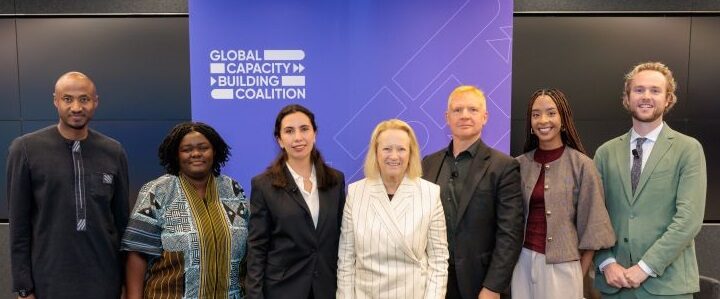In a world where financing climate transition has become a pervasive challenge, Data-to-Deal offers a practical and holistic approach to supporting countries through the process of defining locally owned and grounded transition pathways and mobilizing associated finance.
Data-to-Deal was co-developed by CCG and around 40 international partner organisations based on successful experiences in Latin America, where it rapidly led to the mobilisation of US$11 billion of concessional finance for Costa Rica, the Dominican Republic, Chile and Uruguay.
The existing impact, and potential for future scaling, of Data-to-Deal were recently recognized by the prestigious GCBC Accelerator Award at the New York Climate Action Week.

Data-to-Deal has become both a powerful rallying cry and an important organizing framework
MARK HOWELLS
for CCG’s engagement with countries in the Global South.
D2D is now being applied on the African continent. Thanks to a close partnership with 2050 Pathways and the French Development Agency (AFD), intensive country engagements are currently underway in Botswana and Uganda to develop these countries’ Nationally Determined Contributions.
They are following the D2D approach that integrates intensive political facilitation and stakeholder engagement with robust and deliberative approaches to modelling country transition pathways.


Moreover, to support wider uptake and implementation of the approach, CCG is launching a suite of seven best practice policy briefs. This collection represents the most comprehensive and authoritative guidance to date on the practical steps needed to implement the D2D approach. Packed with real world examples and links to further resources, the briefs are set to become an invaluable reference for practitioners interested in following this approach. The series provides practical advice to governments and their partners on how to integrate D2D into national planning and financing processes.
The primary audience for these briefs includes energy and transport policymakers in LMICs at national and subnational levels, as well as development partners and international organisations that provide technical and financial support. The guidance applies to both mitigation and adaptation priorities, while recognising that the balance between them will differ across country contexts.
This series is of briefs has been produced in collaboration with over 20 international partner organisations, and contributors from LMIC countries, to reflect a collective perspective on how best to leverage investment for climate-aligned energy and transport transitions.
For D2D in Transport Funding by the Foreign, Commonwealth and Development Office (FCDO) has been provided to ADB to further pilot the D2D approach. This aims to support ADB’s Developing Member Countries (DMCs) to overcome key challenges relating to access to finance for transport decarbonisation through the “Pathways for Decarbonization of the Transport Sector” project. Thus, apart from ensuring that high-quality data and low-carbon pathways are used for efficient decision-making, this project focuses on building capacities across DMCs and financiers for coordinating climate priorities across sectors. It also builds capacity identifying Paris Agreement-aligned investment opportunities, as well as for translating low-carbon pathways into long-term strategies and national visions with implementable investment strategies that will enhance access to climate finance.
Data-to-Deal will be a central focus of CCG’s presence at COP30,
VIVIEN FOSTER
where we will be sharing various important developments on it.
Our thanks to our contributing Partners: 2050 Pathways Platform, UCL, Sustain 2030, CEP, Imperial, Smith School, University of Oxford, Loughborough University, Asian Development Bank, DESNZ, KTH Royal Institute of Technology, International Atomic Energy Agency (IAEA), Energy Access Explorer (EAE), Centre for Global Equality (CGE) National University of Laos (NUOL), National Economics University (NEU) Vietnam, Stockholm environment institute, UNDESA, Strathmore University, The University of Zambia (UNZA), WBG, Deep Decarbonisation Pathways, UNDP, EBRD, SEforALL, GFANZ, IRENA, SIDA, IIGCC, FCDO, AFD, GFI, International Energy Agency
